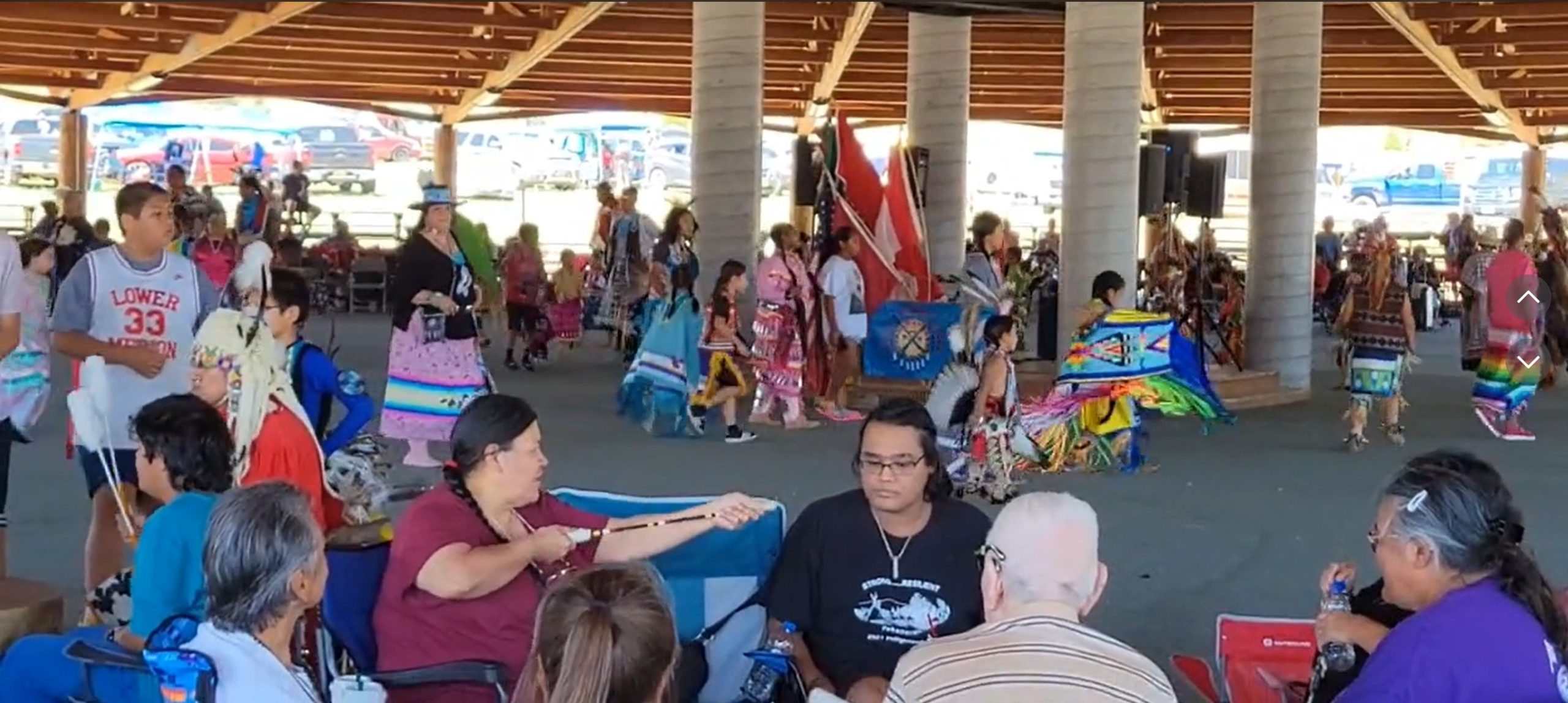Podcast: Play in new window | Download | Embed
The Confederated Salish and Kootenai Tribes say Montana’s TikTok ban, if implemented, would overstep tribal sovereignty.
Montana Public Radio’s Aaron Bolton reports the tribes filed a brief this week to join the legal battle over the ban.
The Salish and Kootenai Tribes side with opponents of the TikTok ban as the U.S. Ninth Circuit Court of Appeals considers the 2023 law.
A federal district court last fall threw out a ban, saying it would violate free speech rights, as well as the federal supremacy clause of the constitution.

The Standing Arrow Powwow on the Flathead Reservation in Elmo, Mont., as seen on TikTok in 2022. (Courtesy @aprilmariewood1 / TikTok)
The Tribes say it would violate the nation’s right to issue its own rules and regulations on the Flathead Reservation.
The brief also said that social media plays an outsized role in disseminating official information from tribal governments. That’s because many people lack high-speed internet at home and largely rely on their phones.
A new federal law will ban the social media app if its China-based parent company doesn’t sell the app within a year.
TikTok is suing the U.S. over that law.
@aprilmariewood1 Standing arrow Powwow in Elmo Montana #FlatheadIndianReservation ♬ original sound – April Marie Wood

Unalaska, Alaska. (Photo: Andy Lusk / KUCB)
The Qawalangin Tribe of Unalaska launched a new program to provide fresh, organic, Alaska-sourced foods to the entire Aleutian community – and to some regional partners.
KUCB’s Andy Lusk reports, organizers held a distribution trial run this spring.
At the event, Unalaskans came to the tribe’s food bank and received bags full of carrots, potatoes, cabbage, and beef — all completely free. That produce and meat came from a family farm in Palmer.
The tribe is interested in partnering with multiple providers over the course of the program, including local fishermen.
Tanaya Horne is the tribe’s COO.
She says the program is part of their ongoing wellness initiatives, and aims to support Alaska farmers by offering their products to locals looking for high-quality, minimally processed foods.
“For Alaska Native people, for American Indian people, our love language is food. That is how we show that we want to be partners with you, and we want to show you that we care about you.”
The project first developed last spring, when the Qawalangin Tribe met with USDA representatives at an economic summit.
The tribe was ultimately awarded over $2 million for the project through the USDA’s Local Food Purchase Assistance Program.
The project came together in partnership with the Aleutian Pribilof Islands Association, who helped facilitate rollout of produce and meat to tribal organizations across the Aleutian Islands region.

Unalaska Food Bank in 2022. (Photo: Theo Greenly / KUCB)
Anfesia Tutiakoff is the Qawalangin Tribe’s cultural director. She hopes the program can dovetail with some of the foods already available in Unalaska, including local herbs.
“The more that we’re able to harvest our natural foods on-island, and use natural foods from these farmers, you’re getting less and less processed foods the more that we do these kinds of programs.”
Tribal services manager Marie Schomer says that during the trial run, around 5,000 pounds of food arrived and was distributed to the community.
“I love doing it, personally, because a lot of families out here are struggling [with] the cost of food. And if you’re able to give them a couple bags of fresh produce and meat, it’s very helpful.”
The cost of food in Alaska is famously high and Unalaska is no exception.
Groceries are barged into the island and take longer to deliver than to stores in the lower 48.
Organizers expect the program to continue throughout the next two years, working in conjunction with other regional tribal organizations’ food security initiatives.
In Unalaska, there are no income restrictions to participation.
Anyone is welcome to take food whether they are a member of the Qawalangin Tribe or not.
Horne says she expects the program to do bi-weekly food bank events by the summer.
Get National Native News delivered to your inbox daily and stay up-to-date on the 2024 Native Vote. Sign up for our daily newsletter today.



